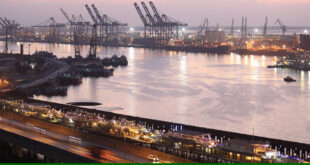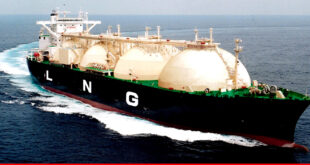Pakistan and India offer natural markets for each other’s export products and both countries are pursuing policies of trade liberalization since early 1990s. In their mutual trade, they can enjoy the advantages of reduced transaction costs and quicker delivery due to geographical proximity, common language and a heritage of common physical infrastructures. During the first half of the current fiscal year, the two-way trade stood at USD 1.1 billion whereas bilateral trade stood at USD 1.9 billion in 2011-12. Owing to various factors, Pakistan’s bilateral trade deficit with India widened substantially over the years. However it is believed that promotion of free trade between the two economies will enhance the trade and economic activities and will generate new business opportunities.
Presently Pakistan’s major exports to India are agri products, furniture and surgical instruments etc; whereas it imports chemical products, tyres and tubes of rubber, pharmaceutical products, iron and steel, ships and boats, black tea, printing matter, machinery and parts, iron and steel manufactures etc from India. It is evident from the trading items that Pakistan is exporting cheaper products as compared to its imports which lead to the trade deficit with India. Despite this, there is a possibility of joint ventures in the areas of agriculture, infrastructure, pharmaceuticals, refinery, oil and gas, iron and steel and India can also provide assistance in further developing the IT sector in Pakistan.
According to commerce ministry, Pakistan’s exports to India had recorded at $1.735 billion in last six years period (from 2006-07 to 2011-12) against the imports of $8.363 billion thus leaving the trade deficit at $6.628 billion. The figures suggest that Pakistan’s exports had never exceeded $350 million in a year while imports from India crossed $1 billion benchmark every year in last six years period.
Pakistan announced in October 2011 that it will grant most favored nation (MFN) status to India from January 1, 2013. In order to get the MFN status, India had supported approval of the European Union trade concessions package for Pakistan by the WTO General Council. India has also agreed to Foreign Direct Investment (FDI) from Pakistan for which necessary procedures and requirements are being formulated. Previously Pakistan missed the deadline of December 15, 2012 to abolish the negative list, as Pakistan being the member of World Trade Organization, it is its obligation to grant India the status of MFN, which India thinks is long overdue, given that India granted Pakistan this status in 1996. India is also planning to target $12 billion trade between these two countries within next five years and its growing economic agenda also includes finalization of modalities of electricity trade and trade in petroleum products. As per a study of State Bank of Pakistan bilateral trade could increase fivefold and will also boost productivity and economic growth if MFN status is granted and nontariff barriers are removed by both India and Pakistan.
Official trade between the two countries might be low but there is a covert market for unofficial trade. There is a lucrative underground market for Indian goods in Pakistan illustrating a demand for tea, sugar and other essential commodities, industrial machinery, cement, tyres and chemicals, which are smuggled into Pakistan. Similarly, edible oils, spices, dry fruits and pulses are smuggled into India from Pakistan. The trade route for this underground trade is the long border between the two countries and also through Iran and Afghanistan. There is another trade link, which is routed through third countries such as the United Arab Emirates, particularly Dubai. This trade is estimated at some $ 3-4 billion per year, and this trade, if undertaken bilaterally, could be done at a much lower cost. Pakistan loses more than $ 500 million annually in custom duties to smugglers.
There is an opinion in Pakistan that by granting MFN to India, there is a danger that Pakistan’s domestic market will be flooded with Indian goods and local business community will suffer. Agriculture sector is concerned about many kinds of hidden and implicit subsidies granted by several State Governments in India such as on electricity for tube wells. These subsidies would not provide a level playing field for Pakistani agriculture producers to compete. Pakistani industries are also opposing recent move of allowing import of over 100 listed goods from India because they want to import that from any other country and allowing concession of customs duties would hurt the local industry, especially milk powder, unsweetened milk and ferrous products as tariff is low on the import of these items. Further, Pakistan’s business community also raises a concern that Pakistan textile products are not given due attention by the Indian side and they focus on textile exports from Bangladesh and Sri Lanka.
If trade with India is normalized, then consumers in Pakistan will be able to get similar quality goods at cheaper rates. Pakistan can import cheap raw materials from India instead of from far off developed countries. Commerce Ministry estimates that Pakistan would get immense benefit with trade liberalization with India as Islamabad could save up to $900 million if it allows import from New Delhi on several items replacing its present imports from other countries at higher cost. GoP allowed import of raw materials for medicines form India which resulted in scaling down prices. However, recently over 50 people died in Punjab by taking cough syrup, investigation revealed that raw material was defected which was imported from India and was immediately banned; therefore it is very essential to put in place the best of the best quality control standards for such items. Likewise, Pakistan exported cement to India recently and they found drugs in the cement bags, for which investigation is still going on. Such incidences should be avoided because such events shake the confidence of people in general and business community in particular.
A number of business delegations have travelled in both countries to bridge the information gap in past and dialogue between the two commerce ministries has led to a number of important steps. It is important to focus on matters pertaining to FDI, non-tariff barriers, energy trade, opening of air and land trade routes between the two countries.
Both countries are in the process of allowing their selective banks to open branches in other country which will help promote the banking sector. Private sector initiatives should be strengthened as they will go a longer way than the official initiatives. Private economic bodies can play an important role in increasing trade cooperation between the two countries. India has allowed Pakistan’s big business houses to invest in India which is a positive step in promoting trade relations. However, at this stage investment in India by a Pakistani businessman doesn’t make sense because Pakistan is passing through a rough patch and their first priority should be investment in Pakistan. Moreover, trade with any other country could only be successful if it is done under the umbrella of nationalism.
In order to improve the trade relations, both countries should also ease restrictions on visas, and issue special multiple entry visas for businessmen, eliminating requirements to report arrival to the police at each place of stay, eliminating city specific visas. In addition, open additional border crossings and increase traffic frequency on the road through the Wagah border and allow increased traffic through the Srinagar-Muzzafarabad route. As a matter of fact, increased trade flow that stems from lifting of the imported items from India would lead to additional customs revenue for Pakistan.
In the last week of December 2012, India breached the peace agreement with Pakistan and violated Line of Control (LOC), in which 2 Pakistani soldiers embraced shadat. Because of this uncalled for action by the Indian Army, Pakistan didn’t grant MFN status to India on December 31st, as agreed. The on-going atmosphere will have its own repercussions and will be reflected on cross-border trade. In a recent newspaper report, the bilateral trade between India and Pakistan is expected to decline by 20 per cent in 2012-13 due to the ongoing tensions at the LOC. Also, Indian businessmen and small merchants who were contemplating trade relations with Pakistan have put their plans on hold.
Political relations between the two countries need to be resolved; a trust deficit needs to be eliminated, which does not allow stability and is a prerequisite for any exchange of goods and services to take place. Pakistan wants to build a relationship of friendship and mutually beneficial cooperation with India. It is said that there is a keen desire on both sides to improve trade and economic links, bridge the information gap between business communities and address each other’s concerns. Business community of both sides has played a key role in normalizing the economic relations and interaction of business community of both countries would further enable the businessmen of both sides to discuss modalities to expand trade and economic relations between them. Pakistan should grant MFN status to India and continue trade on the basis of a negative list rather than on a positive list. In turn, India should reduce tariffs on goods of particular interest to Pakistan like agriculture and textiles-two areas where Pakistan has the biggest exports.
 PAGE Blog Business Weekly Magazine
PAGE Blog Business Weekly Magazine

